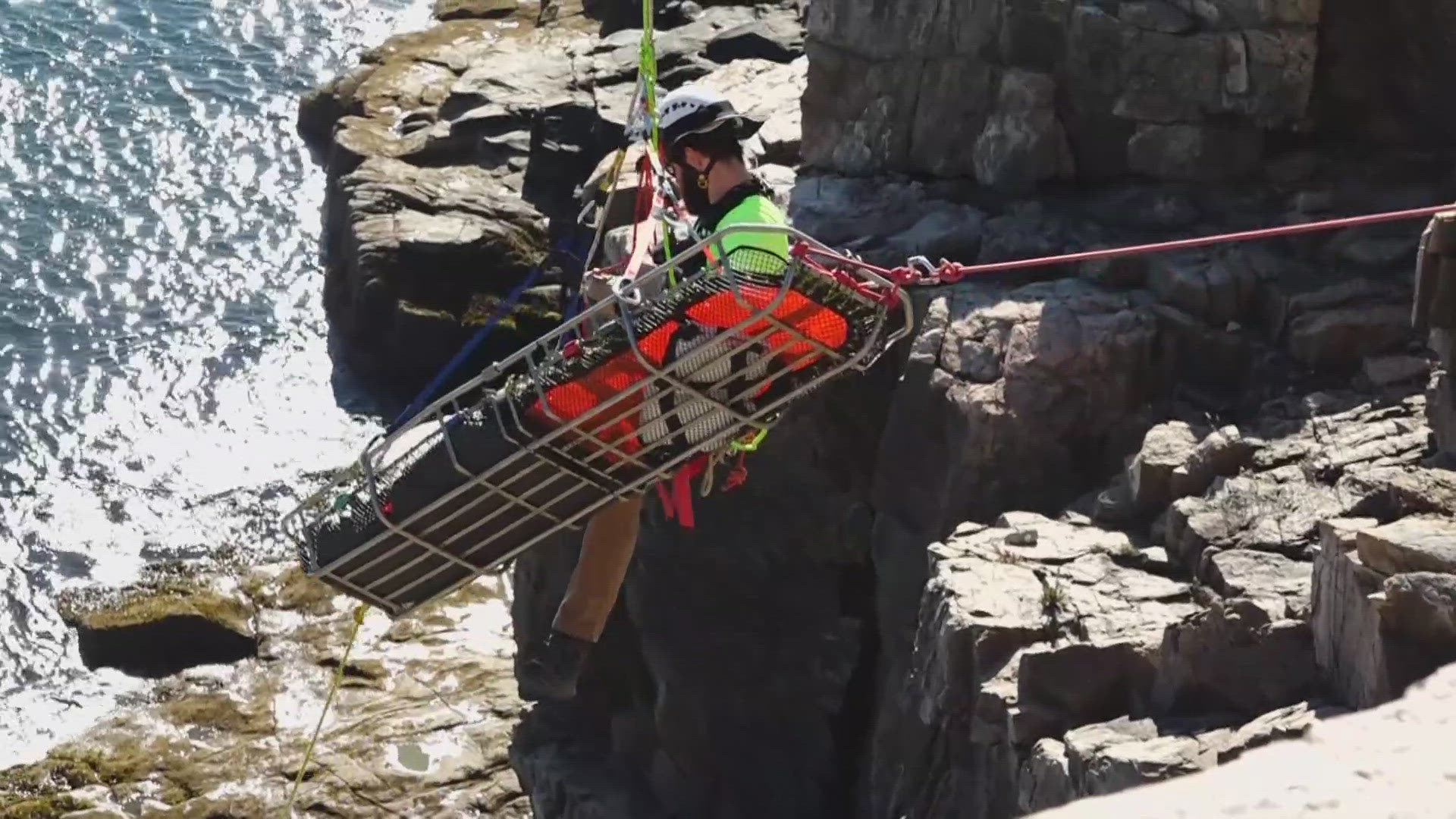MOUNT DESERT, Maine — Acadia National Park sees millions of visitors every year and unfortunately many get injured needing to be carried, lifted, or flown to safety. MDI Search and Rescue trains through every season for when—not if—help is needed.
"In a situation where we don't have the technical skills or enough people to be able to do that, we have to rely on these partners to get people back to safety," Amanda Pollock, the public affairs officer for Acadia National Park, said.
Partners like MDI Search and Rescue and the Mount Desert Fire Department are prepared for when the park needs to call in reinforcements to find and aid a visitor.
Over the sounds of radios and rescue commands, Pollock explained that at least 18 personnel are needed to move a patient per mile of trail.
The steep descents and technical climbs commonplace in Acadia mean that carrying a person out often requires ropes and pulleys to safely make it to the front country.
Park rangers like Seamus Russett are all trained in search and rescue with medical training, however staffing is limited while duties are not.
"Any given rescue is really personnel intensive," Russett said. "If we are handling law enforcement calls, traffic, whatever else we are dealing with, and then we get a search and rescue call, we are incredibly reliant on our partners."
That is why MDI Search and Rescue trains four times a month year-round, MDI Search and Rescue Training Officer Hannah Mondrach said.
"It’s a lot of technical skills," Mondrach said. "We are here consistently, and we train year-round, we have that technical rescue expertise to be able to set up this technical rope system."
Mondrach and 20 others braved coastal gusts to rehearse high-directional rescues from Park Loop Road over Otter Cliffs.
Members of MDI Search and Rescue, Acadia National Park, and Mount Desert Fire Department worked together for four hours, rigging lines and running drills to ensure that when a real rescue is needed, the team is ready.
Steve Hudson, a member of MDI Search and Rescue since 1988, said that when the team brings in out-of-state clinicians, they are always impressed.
"We train a lot," Hudson said. "Their regular comment is,' You guys have it down.'"
New members do not need to have any prior experience. However, they must complete a six-class training orientation MDI Search and Rescue hosts each spring and fall. More information is available on their website and all interested should contact MDI Search and Rescue at mdisar@gmail.com.

